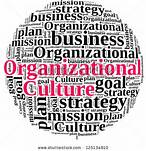There is a great deal of discussion in contemporary organisational life of the need to ‘change the culture’ in organisations. This is a way of talking that assumes that organizations do have discrete cultures and that they are manipulable, although the discourse can have it both ways with the term: on the one hand culture is known to be symbolic, intangible and abstract, on the other it can be the object of conscious and rational redesign and reframing. A good example of this way of talking about organisational culture can be found in the 4th edition of the eminent management scholar Edgar Schein’s book Organizational Culture and Leadership[1].
Usually a prime role is assumed for leaders or senior managers in making the changes to organizational culture because they are considered to have the necessary abilities and skills to diagnose what is wrong with the current culture and to design a better one: one which fits better with the environment. Schein states this very explicitly in his book: ‘In this sense culture is ultimately created, embedded, evolved and ultimately manipulated by leaders’ (2010: 3). As a result of their leaders’ efforts, employees will be obliged to commit to a fresh set of values, or reaffirm an existing set which are thought to have become moribund, as well as demonstrating a suite of required ‘behaviours’ or new procedures. The new values and procedures are then set ‘at the heart of everything we do’, are vigorously communicated and disseminated and form the basis of widespread training programmes for staff, and are then subject to regimes of inspection and performance management. Such change programmes can consume weeks and months of organizational time and resources.
The whole process is a good demonstration of the systemic assumptions behind organizational realignment: values, behaviour, systems, procedures, training, communication and quality regimes are all supposed to line up and fit over each other and form a coherent whole. The emphasis is on integration, stability and alignment. It is a huge reduction of the complexity of what is at stake when attempting organisational change.
A book recently published calling for radical change in the NHS is a refreshing attempt to explain why ‘culture change’ in organisations is likely to be highly problematic. [2] Instead of assuming that whatever we might mean by the term culture is contained within one organisation, even one as big as the NHS, Ballatt and Campling, an ex-senior manager and psychotherapist within the NHS, explain why the institution reflects much wider conflictual social processes, as well as provoking profound questions about what it means to be human. That is, they try to bring together society-wide trends in social patterning in the UK and beyond in terms of their impact on changes in the NHS, and they wrestle with the profound human difficulties and dilemmas involved in professionalising the often spontaneous and improvisational human response of caring towards another human being in need. Though written specifically about the NHS, I think the book also raises important questions for anyone thinking about what is involved in processes of organisational change and echoes some of the themes from the perspective of complex responsive processes of relating. There are some key differences, however, which I will also explore below. Continue reading →

